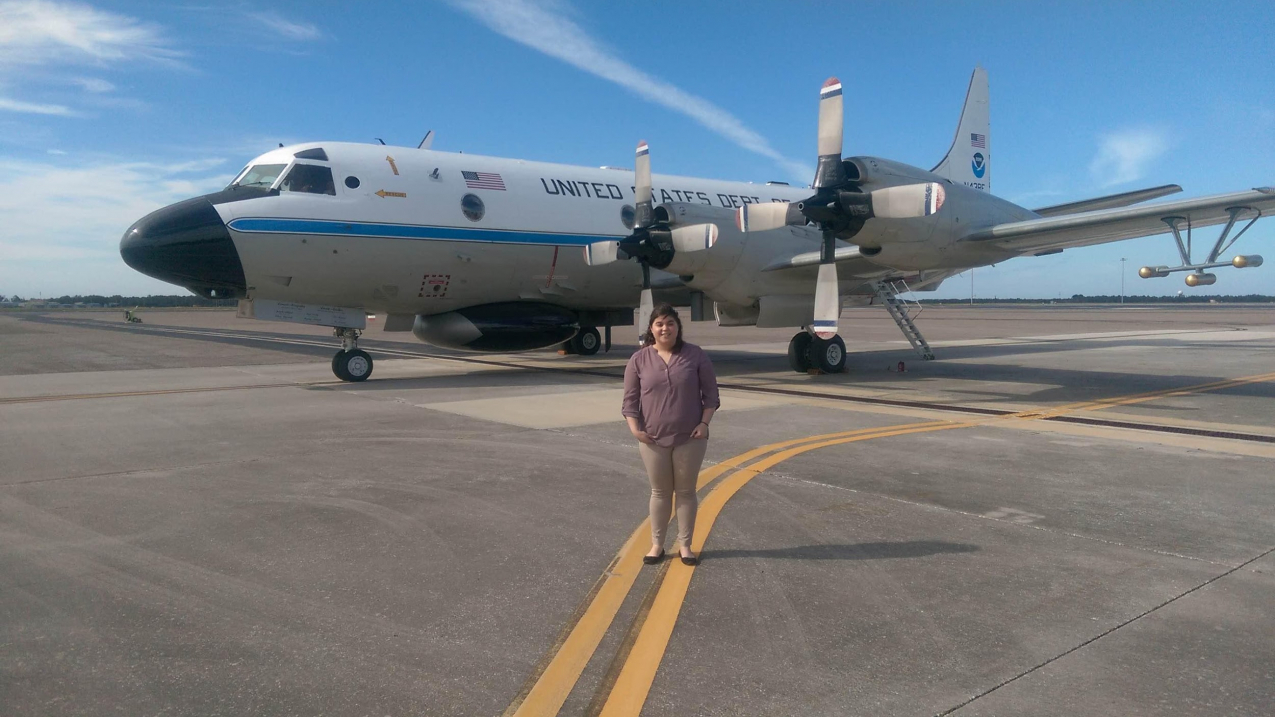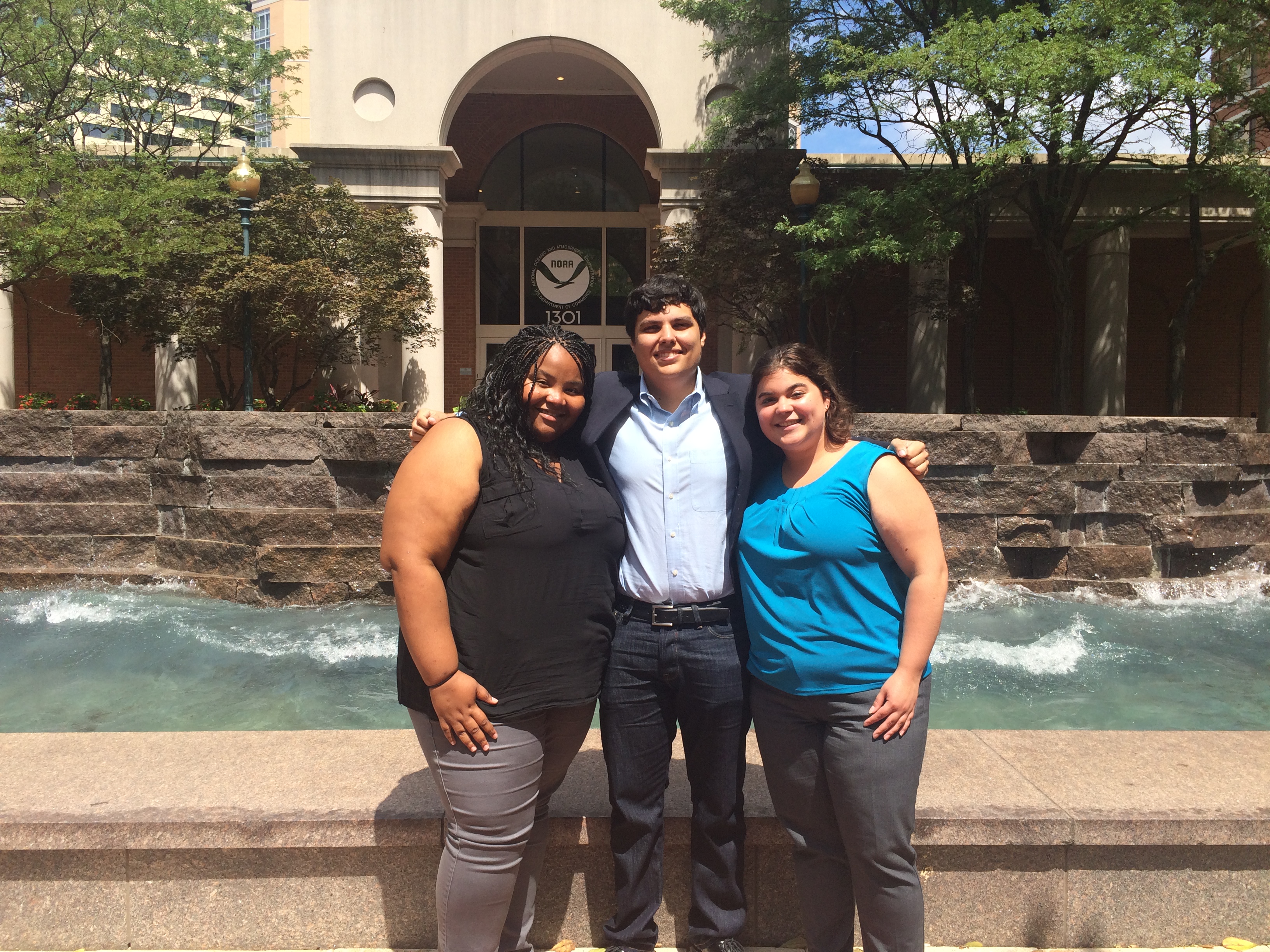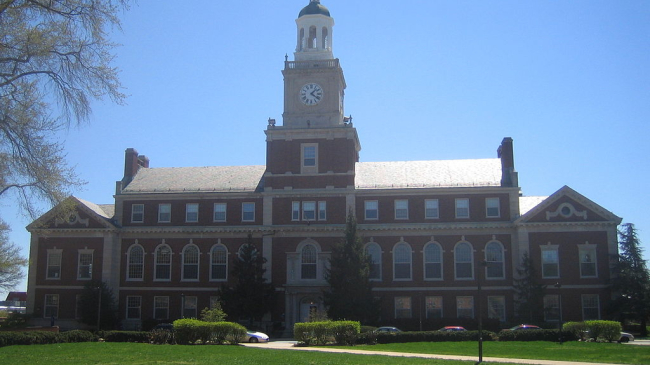Hollings Scholar Lauren Cutler was in the 5th grade when Hurricane Katrina struck New Orleans. Watching the news coverage of the storm, she was taken aback by the scale of the destruction and the severe impact it had on people’s lives. This tragic and historic storm fostered Lauren’s interest in tropical meteorology.

Hollings Scholar Lauren Cutler in front of a P-3 "Hurricane Hunter" aircraft during her internship at MacDill Air Force Base in Tampa, FL. (Image credit: Lauren Cutler)
Fast forwarding to 2015, Lauren was selected as a NOAA Hollings Undergraduate Scholar while pursuing her Bachelor’s degree in Meteorology at the State University of New York at Oswego. During the summer of 2016, she interned with the NOAA Office of Marine & Aviation Operations in the Aircraft Operations Center at MacDill Air Force Base in Tampa, FL.
Lauren’s project focused on using an ensemble approach to establish the statistical accuracy and precision of NOAA’s hurricane wind calibration process. She investigated ways to improve the wind calibration process used on NOAA’s two P-3 “Hurricane Hunter” reconnaissance aircrafts.
NOAA’s “Hurricane Hunters” fly through hurricanes and tropical storms to help forecasters and scientists gather data, such as wind speed and barometric pressure, to supplement information obtained from ground based radar and satellite imagery. Lauren repeated 30 wind calibrations and conducted a statistical analysis while flying two separate fair weather test flights. Lauren’s NOAA mentor is now comparing her findings with analyses conducted for other aircraft to determine whether her calculations may be used operationally.
It was a once in a lifetime opportunity to expand and further my knowledge in my field while being part of a great organization. Wherever I go, I will take this invaluable experience with me."
Lauren learned new skills in tropical and aviation meteorology during her internship. She also worked closely and went through Hurricane Hunter crew training with two Educational Partnership Program Undergraduate Scholars, Katrina Rosemond and Milton Martinez. Lauren says that the three NOAA scholars were able to improve their projects by bouncing ideas off of each other and helping each other throughout the summer. These three NOAA Scholars and “Hurricane Hunters” were reunited at the 2017 American Meteorological Society Annual Meeting in Seattle, WA, where Lauren presented a poster on her research.

Reflecting on her experience as a NOAA Scholar, Lauren remarks, "It was a once in a lifetime opportunity to expand and further my knowledge in my field while being part of a great organization. Wherever I go, I will take this invaluable experience with me." Following graduation, Lauren will spend 10 months serving communities in north central Iowa with the FEMA Corps.
Each summer, a cadre of NOAA Undergraduate Scholars conduct research with the goal of improving our understanding and forecasting of hurricanes. To ensure you are prepared for a storm, The National Weather Service suggests determining your risk, developing an evacuation plan in the event of a storm, and assembling a disaster supply kit. For more tips on how to prepare, please visit the National Weather Service hurricane preparedness website. The Atlantic Hurricane Season begins on June 1st, and will continue until November 30th.



